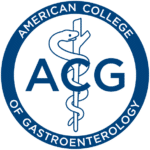Gas
Are you experiencing excessive gas and discomfort in John’s Creek, GA? Gas is a common gastrointestinal issue that can cause bloating, belching, and abdominal discomfort. At our gastroenterology clinic, we specialize in diagnosing and treating gas-related symptoms to help you find relief and improve your digestive health.


Understanding Gas
Gas is a normal byproduct of digestion, but excessive gas production or difficulty passing gas can lead to discomfort and bloating. Gas can accumulate in the digestive tract due to various factors, including swallowing air while eating or drinking, bacterial fermentation of undigested food in the colon, and certain medical conditions such as irritable bowel syndrome (IBS) or lactose intolerance.
Symptoms of Gas
Common symptoms of excessive gas include bloating, belching, flatulence (passing gas), abdominal pain or discomfort, and a feeling of fullness or pressure in the abdomen. These symptoms can vary in severity and may be accompanied by other gastrointestinal issues such as constipation or diarrhea
Treatment Options
Treatment for excessive gas depends on the underlying cause and may include dietary modifications, lifestyle changes, and medications to alleviate symptoms and reduce gas production. Our experienced gastroenterologists will conduct a thorough evaluation to determine the cause of your gas-related symptoms and develop a personalized treatment plan tailored to your needs.







